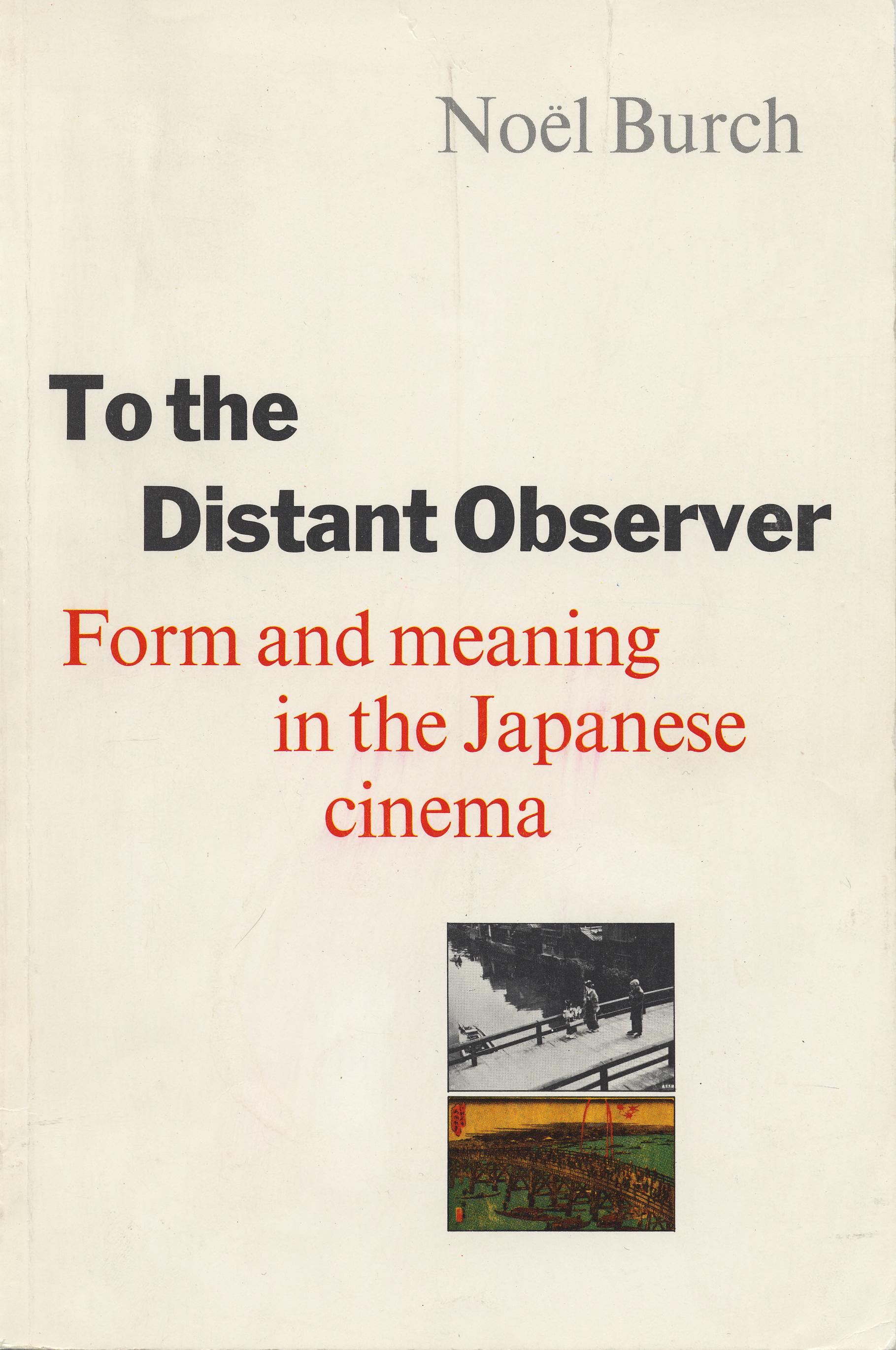At the turn of the century, I became interested in using online databases as a platform for reprinting archival materials for the study of film history and aesthetics. I was grateful to the American attempts at reprinting paper materials on microfilm and the Japanese tradition of facsimile reprints on paper. The latter was particularly central to the study of Japanese cinema. However, in both cases price—and in the case of microfilm, technology—made access problematic. They were radically expensive, so only the largest research libraries owned them and none of them shared the expensive materials by interlibrary loan. So in 2004, I started deploying image databases being developed at the University of Michigan to reprint materials online and making the access free to all.
The second landmark publication I chose to republish in my initial batch of reprints was Noël Burch’s To the Distant Observer.Burch had awful timing. His book came out at the same time as Edward Said’s Orientalism, and he provided a paradigmatic expression of orientalist thinking. The reviews at the time were brutal, and they also utterly missed the audacity and innovation of Burch’s book. It is no exaggeration to assert that Burch aimed to completely upend film historiography with To the Distant Observer. At the time, I found the book fascinating and always challenging, and as post-colonial theory developed, I found the language to articulate what impressed me about Burch’s distant view. It was a theoretically deft first stab at provincializing Europe in both film history and theory. Both film studies and Japanese film studies had dismissed the book, but I knew I had to reprint it.
I had heard through the grapevine that Burch disowned the book. So when I approached him about the reprint, I wrote at length about my sense for its innovation and importance—both historically and for the future of Japanese film studies. To my surprise, he replied something to the tune of, “I took a beating with that book, but actually there are a few things in there that I’d stick to.” He grudgingly agreed to the reprinting. At the same time, I discovered that historian Harry Harootunian was something of a secret admirer of To the Distant Observer, and he readily agreed to writing his thoughts down for a new introduction to the Michigan edition.
As editor, with a new introduction by Harry Harootunian. Visit.
Digital Reprint of Noël Burch's To the Distant Observer


